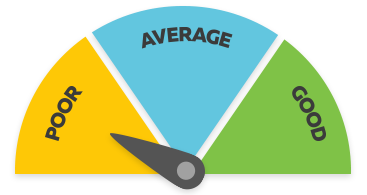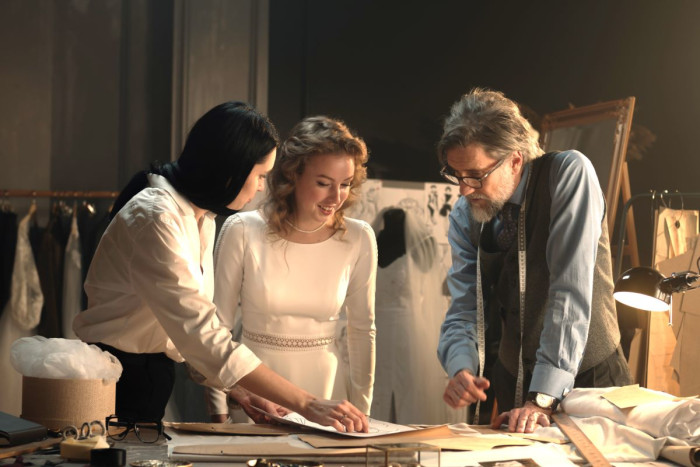Art Director (Film, Television or Stage)
Kaitohu Toi (Kiriata, Pouaka Whakaata, Whakaari rānei)
Alternative titles for this job
Art directors plan, organise and control artistic aspects of film, television or stage productions.
Pay
Pay rates for art directors vary depending on the size, length and budget of the production.
Source: The Big Idea, 2022
Job opportunities
Pay
Pay rates for art directors vary depending on the size and length of the production, the size of the team, and the budget.
Most art directors combine their work with other forms of employment, as work as an art director tends to be irregular.
Source: The Big Idea,' Lowdown: Creatives Income Research Paints "Grim" Picture', 25 May 2023.
(This information is a guide only. Find out more about the sources of our pay information)
What you will do
Art directors may do some or all of the following:
- go over the script with the director to plan what sets need to be built
- prepare a budget for the set design and build
- design the set
- hire an art department team
- build or co-ordinate the building of sets to ensure it happens on time and within budget
- work with wardrobe and make-up departments
- work with special effects companies or teams to design special effects
- hire equipment such as specialised props
- prepare a daily breakdown of the script before shooting to confirm all sets and props are complete and in working order.
Skills and knowledge
Art directors need to have:
- an understanding of the film, television, theatre and/or commercial production process
- knowledge of the different roles within an art department and how the department operates
- artistic and drawing skills
- creative building skills such as carpentry, painting, sculpting or mould-making.
Working conditions
Art directors:
- work varying hours depending on the size, location and filming schedule of the production. It is common for art directors to work long hours that may include early mornings and weekends
- work indoors in studios, and outdoors on location
- may need to travel nationally and internationally to different filming locations.
Entry requirements
To become an art director you usually need to have progressed through other roles within an art department to gain the necessary skills, knowledge and experience.
A driver's licence is usually required.
A degree in film, television or theatre production may be useful – for example, a Bachelor of Design (Stage and Screen). A diploma or degree in any type of art, craft, or textiles subject may also be useful.
Secondary education
Useful secondary subjects include te reo Māori, design and visual communications, media studies, history and classical studies, processing technologies, music, dance and drama.
Personal requirements
Art directors need to be:
- imaginative, creative, artistic and passionate
- good communicators
- good at research
- able to lead, manage and motivate people
- able to work well under pressure
- well organised, with good planning and time management skills
- adaptable, and able to multitask
- good at budgeting and financial planning
- patient.
Useful experience
Useful experience for art directors includes:
- film, television or theatre production
- any type of construction work
- creative pursuits such as painting or sculpting.
Find out more about training
- Screen Production and Development Association of NZ (SPADA)
- (04) 939 6934 - info@spada.co.nz - www.spada.co.nz
What are the chances of getting a job?
Few opportunities for art directors
It is difficult to get work as an art director in New Zealand because the entertainment industry is small.
Your chances of getting a job are best if you network regularly with industry contacts.
Most film industry professionals build a portfolio of previous work to showcase their professional skills.
According to the Census, 153 art directors worked in New Zealand in 2018.
Types of employers varied
Art directors may work independently, for production companies, or for advertising agencies.
They may work on:
- music videos
- television productions
- commercials
- web-based video clips
- short or feature films
- documentaries
- corporate videos
- theatre productions, including ballet and opera
- festivals
- concerts
- exhibitions (such as Armageddon)
- still shoots.
Sources
- Chaiang, J, 'Cutting Covid Losses in the Film Industry', 9 September, 2021, (www.rnz.co.nz).
- Chumko, A, 'LOTR has Departed. Covid-19 is Back. What Does That Mean for our Screen Sector?', 21 August, 2021, (www.rnz.co.nz).
- Creative New Zealand, 'Arts Council lays framework for Phase 2 of Creative New Zealand’s COVID-19 response' (media release), 01 May 2020.
- Ministry for Culture and Heritage, 'Support for Arts and Music Sector Recovery' (media release), 29 May 2020.
- New Zealand Film Commission, 'COVID-19 Response', accessed 17 January 2022, (www.nzfilm.co.nz).
- Radio New Zealand, 'The Impact of COVID-19 on the NZ Film Industry’' 19 March 2020, (www.rnz.co.nz)
- Riera, N, production designer, careers.govt.nz interview, October 2017.
- Sepuloni, Hon. C, Nash, Hon. S, 'Government Support Screen Industry with Funding for Sound Stages in West Auckland', 3 August, 2021, (www.beehive.govt.nz).
- Stats NZ, '2018 Census Data', 2019.
(This information is a guide only. Find out more about the sources of our job opportunities information)
Progression and specialisations
Art directors usually specialise in film, short videos, or stage productions.
Last updated 18 December 2023

